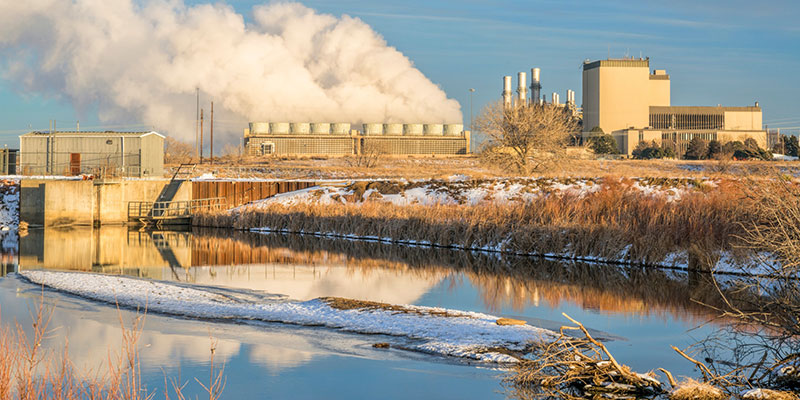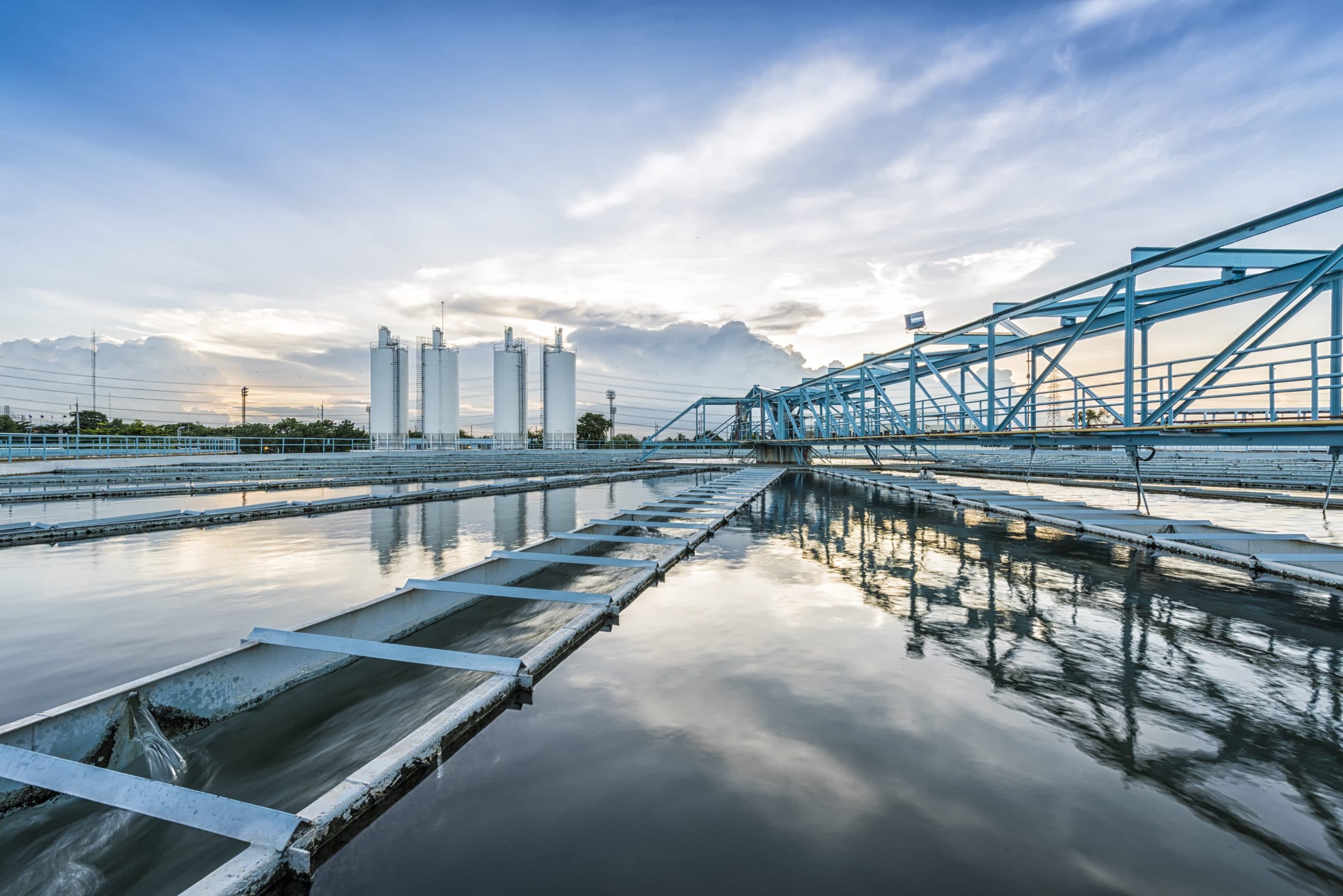Industrial Waste Water Treatment-- Boost Performance with Customized Water Treatment Systems
Industrial Waste Water Treatment-- Boost Performance with Customized Water Treatment Systems
Blog Article
The Function of Hazardous Waste Water Treatment in Environmental Defense
The effective treatment of commercial wastewater is progressively identified as a foundation of ecological security, offering to reduce the detrimental effects of pollutants on water ecosystems. As markets increase and develop, the demand for robust wastewater monitoring solutions ends up being extremely important to guarantee conformity with ecological policies and advertise lasting practices.
Value of Drainage Therapy
The significance of wastewater therapy can not be overemphasized, as it plays a vital duty in protecting public health and wellness and the atmosphere (Industrial Waste Water Treatment). Reliable wastewater treatment systems are important for eliminating contaminants from industrial discharge, consequently protecting against hazardous compounds from going into all-natural water bodies. This procedure decreases the threat of waterborne diseases, which can arise from neglected wastewater, and safeguards neighborhood health and wellness
Additionally, treated wastewater can be safely reused in different applications, such as irrigation and industrial processes, promoting lasting water monitoring techniques. By reusing water, sectors can significantly lower their freshwater usage, adding to resource conservation.
In addition to health advantages, wastewater therapy is vital for preserving water ecological communities. Pollutants in neglected wastewater can cause the destruction of water top quality, harming aquatic life and interrupting environmental equilibriums. By dealing with wastewater prior to discharge, sectors aid keep the honesty of local ecosystems and promote biodiversity.
Additionally, regulative compliance is an essential element of wastewater administration. Complying with well established ecological requirements not just prevents legal consequences but also enhances a company's credibility as a responsible corporate citizen. Essentially, reliable wastewater therapy is crucial for guarding public wellness, securing the atmosphere, and promoting lasting commercial methods.

Sources of Industrial Waste Water
Industrial wastewater stems from a variety of sources, each adding to the intricacy of treatment procedures. Mostly, these sources consist of making centers, refineries, and handling plants, which generate effluents as a by-product of their operations. Industries such as fabrics, drugs, food and drink, and petrochemicals generate substantial volumes of wastewater, typically stuffed with contaminants including heavy metals, organic compounds, and nutrients.
In addition to manufacturing, agricultural activities add to industrial wastewater with overflow and effluent from livestock operations and crop processing. The meat and dairy products industries, in specific, are understood for releasing high levels of biochemical oxygen demand (BOD) and microorganisms.
Additionally, mining and mineral processing activities produce wastewater including suspended solids and dangerous chemicals. Power generation plants, especially those utilizing fossil fuels, also contribute wastewater through cooling down systems and chemical cleansing procedures.
Each of these sources presents unique challenges regarding the composition and quantity of wastewater created, requiring tailored treatment solutions to minimize their ecological influence. Comprehending the diverse origins of commercial wastewater is crucial for creating efficient management strategies focused on securing water resources and promoting lasting industrial practices.
Therapy Procedures and Technologies
Reliable treatment processes and modern technologies are vital for handling commercial wastewater and alleviating its environmental influence. Different methods are used to eliminate contaminants, adjust to different wastewater attributes, and adhere to governing standards.
Physical therapy processes, such as sedimentation and purification, facilitate the elimination of suspended solids. These techniques are commonly utilized as initial actions to minimize the load on succeeding therapy stages. Chemical therapy, including neutralization, coagulation, and flocculation, addresses dissolved contaminants by altering their chemical buildings, making them simpler to divide from water.
Organic treatment innovations, such as turned on sludge systems and biofilters, utilize bacteria to deteriorate raw material and nutrients. These methods are especially reliable for biodegradable waste streams, advertising the natural decay procedure. Advanced therapy technologies, such as membrane filtering and progressed oxidation procedures, deal enhanced removal effectiveness for difficult toxins, consisting of hefty metals and persistent organic compounds.
Each of these treatment processes can be set up in different mixes to develop customized remedies that meet specific industrial requirements. The option of innovation depends upon aspects such as the sort of wastewater, wanted therapy end results, and financial factors to consider, making certain that sectors can run sustainably while minimizing their ecological footprint.
Environmental Advantages
Implementing robust wastewater therapy refines not just makes certain conformity with regulative requirements however likewise generates site web significant environmental advantages. Reliable therapy of industrial wastewater decreases the discharge of dangerous contaminants into natural water bodies, thereby protecting marine ecological communities. By eliminating toxic materials, heavy metals, and virus, these procedures aid preserve biodiversity and advertise healthier ecological communities.
Additionally, dealt with wastewater can be repurposed for different applications, consisting of watering and commercial procedures, minimizing the demand for freshwater resources. This reuse not only preserves water but likewise reduces the tension on local water materials, which is particularly critical in water-scarce regions.
In addition, effective wastewater treatment minimizes the danger of soil and groundwater contamination, making certain the stability of local atmospheres. Industrial Waste Water Treatment. By avoiding the seepage of dangerous materials, industries add to the overall wellness of surrounding communities and environments, boosting public trust and cultivating sustainable industrial techniques
Regulatory Framework and Conformity
An extensive regulative structure regulates the therapy of commercial wastewater, guaranteeing that sectors abide by strict conformity criteria. Various national and neighborhood regulations, such as the Clean Water Act in the United States, stated limits on the discharge of pollutants into water bodies. These guidelines are designed to safeguard water ecological communities and public health by mandating that markets carry out ideal treatment technologies.
Compliance with these guidelines usually involves obtaining licenses, performing normal surveillance, and reporting discharge levels to regulatory authorities. Failing to comply can result in considerable charges, including fines and operational limitations, consequently incentivizing sectors to take on ideal techniques in wastewater monitoring.
In enhancement to governmental laws, many industries additionally follow volunteer criteria and qualifications, such as ISO 14001, which advertise lasting ecological administration methods. Additionally, stakeholders are progressively advocating for enhanced transparency and responsibility in wastewater monitoring, promoting more stringent enforcement and more rigorous coverage needs.
Inevitably, a durable regulatory structure not just serves to mitigate ecological dangers but also cultivates a culture of find out here sustainability within the industrial market, motivating continuous renovation in wastewater treatment processes.
Final Thought

The reliable therapy of industrial wastewater is significantly acknowledged as a cornerstone of ecological protection, offering to alleviate the detrimental influences of contaminants on aquatic environments. Effective wastewater therapy systems are vital for removing pollutants from industrial discharge, consequently avoiding harmful compounds from getting in natural water bodies.Industrial wastewater stems from a variety of resources, each contributing to the complexity of therapy processes. Efficient therapy of industrial wastewater minimizes the discharge of hazardous toxins into natural water check my blog bodies, therefore safeguarding marine ecosystems.In final thought, commercial wastewater treatment is vital for safeguarding environmental stability and advertising sustainable water administration.
Report this page